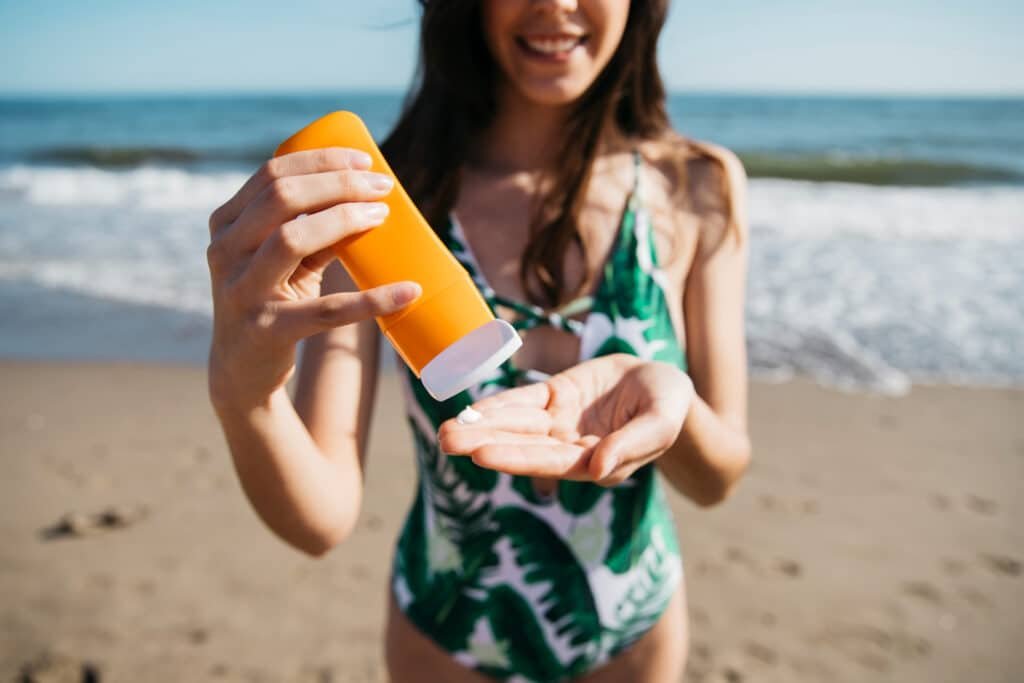
What is SPF and why is it so important?
The SPF (Sun Protection Factor) is a number that we see on all sunscreen packages and it shows us the level of protection the product provides against harmful solar radiation, especially UVB rays. UVB rays are what cause the well-known “burn” to the skin and can lead to serious damage, such as skin cancer.
Sun protection is essential because ultraviolet radiation, which consists mainly of UVA and UVB rays, negatively affects skin health. UVA causes premature aging, wrinkles and collagen damage, while UVB is responsible for sunburn and cancer.
How does the SPF index work?
The SPF number represents the multiplier of the time the skin can be exposed to the sun without burning, compared to the time it would burn without sunscreen.
Example:
If your skin starts to redden after 20 minutes of sun exposure without sunscreen, then a sunscreen with SPF 15 will allow you to stay in the sun 15 times longer, which is about 5 hours (20 minutes x 15). This is only true if you apply the right amount of sunscreen and reapply it regularly.
What is the difference between the different SPF ratings?
- SPF 15: Filters out approximately 93% of UVB rays. Offers basic protection for everyday use, especially for those with darker skin or little sun exposure.
- SPF 30: Filters 97% of UVB rays. It is ideal for lighter skin tones and more intense sunbathing.
- SPF 50+: Filters 98% or more of UVB rays. Suitable for very sensitive skin, people with photosensitivity, children or for prolonged sun exposure.
Although the difference between SPF 30 and 50+ seems small in percentage, in reality the extra protection is important especially for sensitive skin.
When and how should we use sunscreen?
- Before exposure: Sunscreen should be applied 20-30 minutes before going out in the sun, so that it can be properly absorbed by the skin.
- How much: Use a generous amount — about a large teaspoon for face and neck and larger for body.
- Reapplication: Repeat application every 2 hours, especially if you sweat or swim.
- Daily use: Even on cloudy days, UVA and UVB rays can damage the skin, so using sunscreen is important all year round.
How do I choose the right sunscreen for my skin?
The choice of sunscreen should be based on three factors:
- Skin type: If you have fair, sensitive skin, you need a higher SPF. If your skin tans easily, you may want to choose a lower SPF.
- Hours of exposure: The longer you will be in the sun, the higher SPF you need.
- Special needs: If you are photosensitivity, or are a child, choose a sunscreen with high protection and broad spectrum (UVA+UVB).
Conclusion
The SPF index is a valuable guide to protecting our skin from the sun’s harmful rays. However, choosing a high SPF is not enough, but proper use and regular renewal of sunscreen is necessary to avoid burns, premature aging and more serious health problems. Protecting the skin from the sun is an investment in our long-term health and beauty.
Book your appointment today at the dermatology clinic in Glyfada for a personalized diagnosis | dermatologist Glyfada




